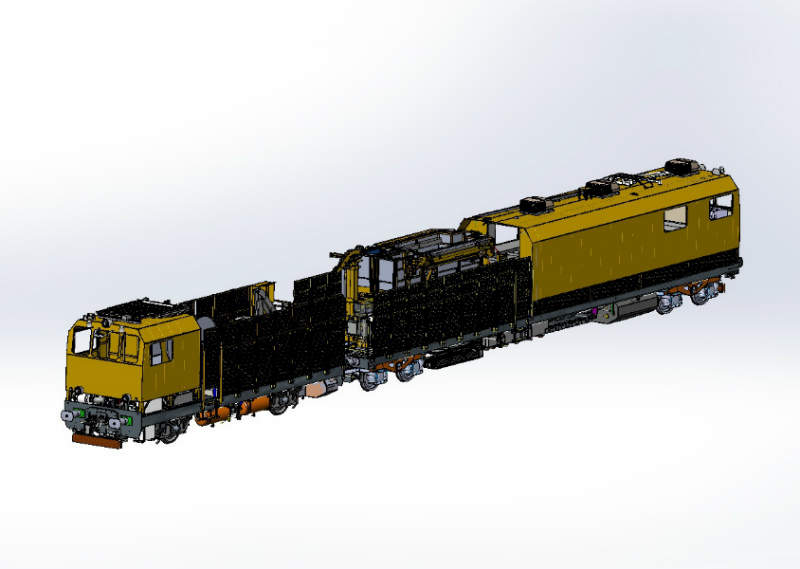
Belgium-based CMI (Cockerill Maintenance et Ingénierie) has selected Eurailtest to assist the group in obtaining type approval for its EMC 8-310 works vehicle.
Initially, CMI required simulation tests to confirm the behaviour of the vehicle on the track. Later it requested dynamic tests following the adaptations made in the light of simulation results.
Simulations were undertaken by the SNCF Rolling Stock Engineering Centre (CIM). The process involved using SIMPACK software to produce a model of the works vehicle and a digital track representative of EMC 8-310 future running patterns. From this, the software could then calculate critical train speed to optimise vehicle stiffness.
The purpose of the exercise was to simulate and monitor vehicle behaviour before testing it on a dedicated test site. It proved a quick way of confirming that, when stable, the vehicle was capable of passing the type approval test at the requisite nominal speed, saving time and boosting productivity in the longer term.
Digital simulation flagged up certain incompatibilities between rolling stock and infrastructure, enabling the design parameters to be adapted upstream of the actual testing process.
Eurailtest has already conducted simulations for the CNM project (Nimes and Montpellier bypass) on behalf of Oc’Via and for the SEA (South Europe Atlantic) high-speed line in 2017.
This new simulation technique has attracted considerable attention from our clients, who much appreciate its originality and the quality of the services rendered.
To discover more about digital simulation, we refer to you the interview given by Eurailtest EIG member laboratory experts and the article on the technical aspects of the SIMGAB project available on the website.

